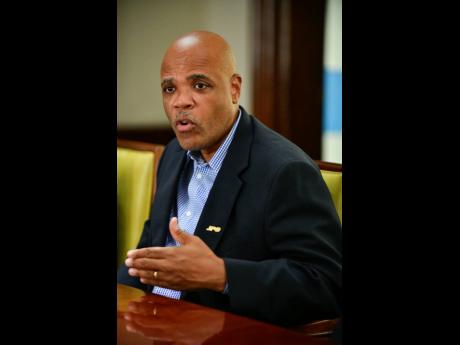JPS wants special court for electricity thieves
The Jamaica Public Service Company (JPS) has called for the Government to establish a special utility court to prosecute electricity thieves.
Senior company officials have argued that no loss-reduction programme would be effective and sustainable without a high probability of offenders being caught and prosecuted.
Despite spending US$150 million in the last five years to reduce electricity theft, the JPS said it was incurring US$200 million in losses owing to illegal connections, with one in four customers illicitly abstracting power.
The company says, every year, approximately 200,000 households steal electricity.
The top brass of JPS on Thursday presented a suite of recommendations to a joint-select committee considering the Electricity Act 2015 to tackle the perennial problem of stealing electricity.
Given the prevalence of electricity theft and other utility offences, JPS executives argued that increased prosecutions could overwhelm the already overburdened courts.
The company outlined that, in some jurisdictions, special courts or dedicated court sessions are held for mass processing of offences.
“This avoids tying up the resources of law enforcement, judiciary, and litigants for inordinate periods, and sends a strong message about the seriousness of the crime. Increased fines imposed and collected could aid the courts to be self-sustaining,” the company stated in a submission to the committee.
Ramsay McDonald, senior vice-president of customer services, said that electricity theft was widespread in Jamaica.
He said that the scourge has been a way of life for many people, adding that there was a “high degree of encouragement and social acceptance and indifference stealing power – that has to stop”.
McDonald said that, over the last five years, the company created the Community Renewal Division to tackle electricity theft, pumping resources into vocational training and health and wellness fairs.
However, he said the company needed support from the Government and other stakeholders to reduce electricity theft.
The National Water Commission (NWC) reported on Wednesday that illegal connections cost the state body $3.5 billion to $4 billion in losses monthly, while electricity theft, which is among the company’s biggest supply costs, accounts for $550 million to $725 million per month.

